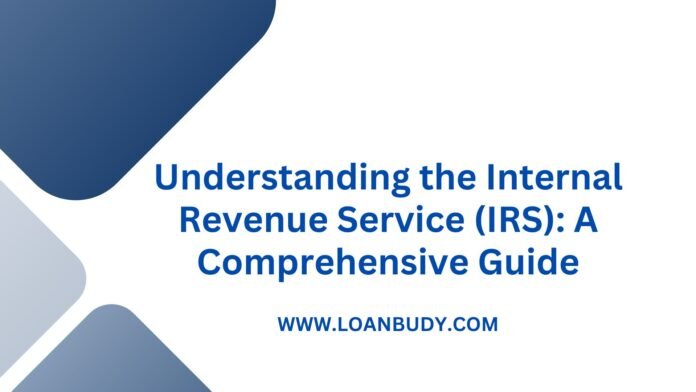When it comes to taxes in the United States, the Internal Revenue Service (IRS) is a central figure that affects nearly every aspect of personal and business finance. But what exactly is the IRS, and why is it so significant? In this blog post, we’ll explore the role, responsibilities, and functions of the IRS, shedding light on its importance and impact.
What is the IRS?
The Internal Revenue Service (IRS) is the federal agency responsible for administering and enforcing the internal revenue laws of the United States. It operates under the authority of the Department of the Treasury and plays a crucial role in the country’s financial system. Established in 1862 by President Abraham Lincoln, the IRS’s primary mission is to ensure that taxpayers comply with the tax laws and regulations, thereby facilitating the collection of federal revenue.
Key Functions of the IRS
1. Tax Collection
One of the most well-known functions of the IRS is tax collection. The agency is responsible for collecting various forms of taxes, including individual income taxes, corporate taxes, estate and gift taxes, and employment taxes. This revenue is essential for funding government operations and public services, such as infrastructure, education, and national defense.
2. Taxpayer Services
The IRS provides a range of services to assist taxpayers in understanding and meeting their tax obligations. This includes offering resources such as tax guides, online tools, and help desks. The IRS also operates the Volunteer Income Tax Assistance (VITA) program, which provides free tax help to qualifying individuals.
3. Enforcement
To ensure compliance with tax laws, the IRS has enforcement authority. This includes auditing tax returns to verify accuracy, investigating potential tax fraud, and taking legal action against individuals or businesses that fail to comply with tax regulations. The IRS employs a variety of tools and techniques to detect and address non-compliance.
4. Tax Policy Implementation
The IRS plays a role in implementing and administering tax policies established by Congress. This involves interpreting tax laws, issuing regulations, and providing guidance to taxpayers and tax professionals. The IRS’s role in this process helps ensure that tax laws are applied consistently and fairly.
How the IRS Affects You
The IRS impacts individuals and businesses in several ways:
- Filing Taxes: Most people are required to file annual tax returns with the IRS. This involves reporting income, deductions, and credits to determine the amount of tax owed or the refund due.
- Withholding and Estimated Payments: Employers withhold federal income tax from employees’ paychecks and remit it to the IRS. Self-employed individuals and those with other sources of income may need to make estimated tax payments throughout the year.
- Refunds and Credits: The IRS processes tax refunds for individuals and businesses who have overpaid their taxes. Additionally, the IRS administers various tax credits and deductions that can reduce the amount of tax owed.
- Penalties and Audits: Failure to comply with tax laws can result in penalties and interest. The IRS may also conduct audits to ensure that tax returns are accurate and in compliance with the law.
Dealing with the IRS can seem daunting, but understanding its functions and knowing how to navigate the system can make the process smoother:
- Stay Informed: Keep up with tax law changes and deadlines to avoid surprises. The IRS website offers a wealth of information and resources.
- Seek Professional Help: Consider consulting with a tax professional or accountant, especially if you have complex financial situations or need assistance with filing.
- Keep Records: Maintain accurate and detailed records of your income, expenses, and tax filings. This will help you prepare your taxes and respond to any IRS inquiries.
Conclusion
The Internal Revenue Service (IRS) is a vital component of the U.S. financial system, responsible for collecting taxes, enforcing tax laws, and implementing tax policies. While interacting with the IRS can sometimes be challenging, understanding its role and functions can help you manage your tax responsibilities more effectively. By staying informed and seeking assistance when needed, you can navigate the complexities of the tax system with greater confidence.
Feel free to share this blog post with others who might benefit from understanding the IRS better, and don’t hesitate to reach out with any questions or concerns you may have about your taxes!
Read More:
- How to Open a High Yield Savings Account
- August was the Most Volatile Month for Stocks in Years. What Does September Hold?
- The 9 Best Life Insurance Companies for September 2024












